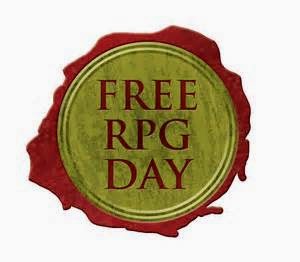To be honest with you, when I first heard that the folks at Wizards of the Coast were planning to release a new board game set in the D&D universe, well, I wasn't too excited. Don't get me wrong -- I'm a long time Magic player and I have nothing but respect for the design and publishing skills that the folks at WotC have; but, historically, these kinds of 'cross-over' projects have tended to be nothing more than marketing ploys that often prove to be triumphs of form over content. You can imagine my surprise then, when I played Lords of Waterdeep and discovered that it wasn't just an ok game, it was a fantastic game. The true surprise, however, was the realization that, beneath the D&D facade, beat the heart of a true euro game! Now that I didn't see coming. That's right dear reader -- inside the box you'll discover a worker placing, cube pushing, resource managing, VP generating game that's so euro it might as well be called Hans! And you know what? It's good -- really good!
So how does it all work? Well, at the start of the game you'll be given a lord card (the identity of which will be kept secret from the other players) and this card not only represents your fictional identity in the game, but also indicates how you can earn VP over the course of the game. You see, each lord will provide rewards for completing certain kinds of quests during the game. Quests, you say? Now, we're taking! Each player will collect quest cards of various types (Warfare, Skullduggery, Commerce and Arcane to be precise) and you can complete these quests by gathering together a band of adventures who'll undertake said quests and, in so doing earn you VP. And this is where the worker placement portion of the game kicks in.
You see, the main game board represents the city of Waterdeep and in that city there are various locations and buildings that can be visited by your trusty agents. That's right: you'll begin the game with a certain number of agents (workers/meeples) and you'll be able to send those agents out into the city to collect fighters, clerics, mages and money (wonderfully represented by the classically beautiful wooden cubes of many colours) and you'll be able to pool those resources in your tavern (read player board) in an effort to gather the necessary resources to complete the quest cards you've aquired. Of course, all of those other lords (your fellow gamers / opponents) are equally keen to amass resources and complete quests -- and it's going to be a battle of timing and decisions to see if you can beat them to the key resources your need -- because once a location is filled by a agent it can't be occupied by anyone else until the next round! As an aside, the different buildings that can be built by the various players will be different from game to game and that means that the city of Waterdeep will always be different with every game -- a definite plus in terms of replayability and bang-for-your-buck.
So what makes LoWD a game worth taking note of? Well, first of all, I think it's the simple elegance of the game play. I have rarely played a game that plays so smoothly in terms of it's mechanics and rules -- every thing just clicks together so well. It's also a title that has very simple rules, yet requires making tough decisions -- especially about timing. When you combine the simplicity of the rules and the elegance of the mechanics with the challenging decisions what you get is that very rare breed of game that can serve as both a 'gateway' style game and a title that proves satisfying even for more seasoned gamers. In my experience, LoWD has proven accessible to and well received by: families, new gamers, as well as hardcore eurogamers. Further the game plays well with any number of players and, somewhat surprisingly, it's even enjoyable with two! In addition, the niftiest part of the game are the Intrigue Cards. These cards require the placement of a worker on the board in order to activate and while they always help you, they sometimes help and/or hinder other players. This introduces a degree of player interaction into the game that's both interesting and challenging, without being excessively aggressive or confrontational. With the exception of the box itself (which really is something of an atrocity) the components are both beautiful and durable. And, while the box may be disappointing, LoWD redeems itself with, arguably, one of the best box inserts of all time. Most of all, the game is just plain fun!
So, is LoWD a game for you? Well, it just might be if:
* You are a fan of euro games.
* You enjoy the worker placement mechanic.
* You're looking for a good title to introduce either your family or new gamers to the hobby.
* You enjoy games with a moderate degree of player interaction -- but without significant 'screwage'.
* You enjoy a game where you won't know who won until the final points have been tallied.
* You're a fan of the fantasy genre and the D&D universe.
* You like well produced games that look good on the table.
Overall, this is one of my personal favourites from the last year and I am eargerly awaiting the expansion that is scheduled to be released in mid-August. That's right: I said expansion! It's called The Scoundrels of Skullport and it offers more buildings, more lords and more sections of the city to explore! Ultimately, I loved by the base game, can't wait for the expansion, and I heartily recommend checking out Lords of Waterdeep the next time you're down at the store.
Subscribe to:
Post Comments (Atom)








2 comments:
Sounds intriguing, thanks for the review Jeff. How long is an average game? I wouldn't mind giving it a chance at an L.A. Mood board gaming afternoon.
LoW is a truly great game. Really looking forward to the expansion this month (6th player added!). To answer your question Steve once you are comfortable with the game play a typical game shouldn't last more then 90 minutes. The last 2 rounds always seem to take up the most time though!
Post a Comment